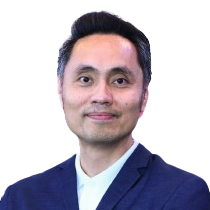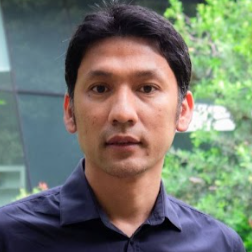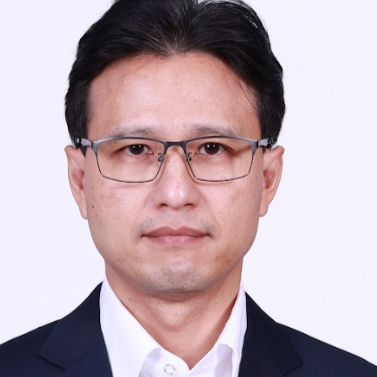Panel Session 6
Hosted by Dr. Nipon Ketjoy
Director School of Renewable Energy and Smart Grid Technology,
Naresuan University, Thailand
28 Nov 2025, 11:00 - 12:30 |
Spark Room 3
"Thailand's Demand Response Journey: Pilot Lessons and Pathways to Automation"
Synopsis
Thailand's journey in implementing Demand Response (DR) programs reflects an evolving approach to balancing energy demand and supply through innovation and stakeholder collaboration. The country has initiated several pilot projects to test the feasibility of DR mechanisms, focusing on industrial and commercial sectors as the primary participants. These pilots have provided valuable lessons on consumer behavior, incentive design, data communication, and system reliability.
The initial phase highlighted challenges such as limited awareness among end-users, technical integration with existing grid infrastructure, and the need for regulatory support. Nevertheless, the pilots demonstrated measurable benefits, including peak load reduction, enhanced grid flexibility, and opportunities for integrating renewable energy resources more effectively.
Moving forward, Thailand is preparing pathways to automation in DR programs. The focus is on leveraging digital technologies such as advanced metering infrastructure (AMI), smart sensors, artificial intelligence, and automated control systems. These advancements aim to transition DR from a manual, incentive-driven practice into a fully automated, real-time resource that enhances grid stability, reduces costs, and supports national energy transition goals.
By learning from pilot experiences and progressively adopting automation, Thailand is positioning itself to build a modern, resilient, and sustainable energy management system aligned with global best practices.

Dr. Nipon Ketjoy
Director School of Renewable Energy and Smart Grid Technology,
Naresuan University, Thailand
Host Panelist
Dr. Nipon Ketjoy is a distinguished academic and expert in renewable energy and smart grid technology. He currently serves as the Director of the School of Renewable Energy and Smart Grid Technology (SGtech) at Naresuan University, Thailand, and the Program Director of the M.S. and Ph.D. programs in Smart Grid Technology. He is also the former Program Director of the M.S. and Ph.D. programs in Renewable Energy. He holds a Ph.D. (Dr.-Ing.) in Electrical Engineering from the University of Kassel, Germany; an M.Sc. in Energy Technology from King Mongkut's University of Technology Thonburi; and a B.Sc. in Physics-Energy from Naresuan University, Thailand.
With over two decades of experience, Dr. Ketjoy has played a leading role in research, teaching, and consulting in the areas of photovoltaic systems, hybrid systems, smart grids, energy storage, and microgrid technologies. He has led or contributed to more than 100 national and international research projects, collaborating with institutions such as NEDO (Japan), GIZ (Germany), UNDP, PEA (Thailand), and the Ministry of Energy (Thailand). He has also served as an advisor and consultant for government agencies, utilities, and private sector companies on photovoltaic power plants (solar farms and rooftops), smart grid policy, and demand response programs.
Dr. Ketjoy holds multiple patents and petty patents in solar energy technologies, has supervised numerous doctoral students, and has authored over 50 Scopus-indexed publications with more than 1,000 citations. His research spans the technical, policy, and implementation aspects of renewable energy systems in Southeast Asia, particularly in Thailand.

Dr. Yodthong Mensin
Deputy Director for Research and Academic Services, School of Renewable Energy and Smart Grid Technology,
Naresuan University, Thailand
Panelist
Yodthong Mensin obtained a bachelor's degree (B. Sc) in Computer Science, and a Master (M. Sc) in Information Technology from Naresuan University, Thailand. He received his doctorate in Energy, communities, and the environment from Chiang Mai Rajabhat University. He also received a Certificate in Renewable Energy Technology from the University of Applied Science in Stralsund, Germany. He is currently a deputy director of research and academic affairs at the School of Renewable Energy and Smart Grid Technology (SGtech) at Naresuan University, Thailand. He is a permanent speaker for the IEEE conference in the Power and Energy Society section in Thailand. He has experience in the field of a microgrid system, automated demand response (ADR), virtual power plant (VPP), energy management system, smart grid data utilization, and energy trading platform with blockchain technology for more than 15 years. Currently, he is the advisory's team member for the mega-project implementation of Thailand utilities, Ministry of Energy, and private sector.

Parinya Sonsaard
Deputy Manager, Smart Grid Division, PEA
Panelist
Parinya Sonsaard is a leading expert in electrical engineering and smart grid technology, currently serving as Deputy Manager of the Smart Grid Division at PEA. He holds a Ph.D. in Smart Grid Technology from Naresuan University, with research focused on demand response business solutions for Thailand's grid modernization. With over 20 years of experience, Dr. Parinya has played a pivotal role in developing advanced energy systems, including AMI, EMS, DR, and BESS. He has received multiple honors and scholarships for his contributions to Thailand's energy sector and continues to drive innovation in smart grid planning and energy management.

Representative from Advanced Power System
Technology Division, Electricity Generating Authority of Thailand (EGAT)